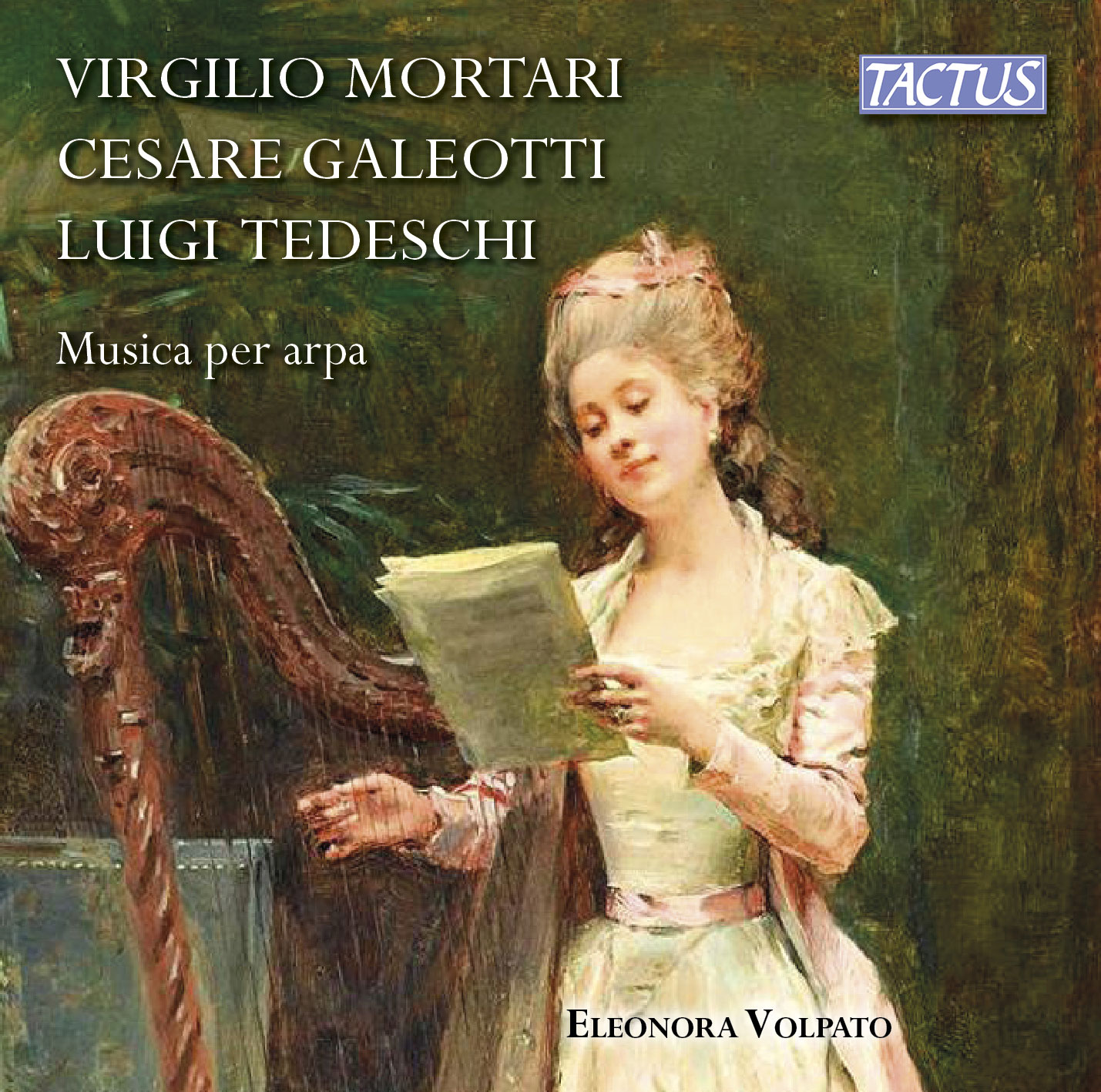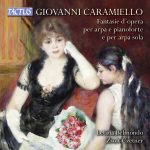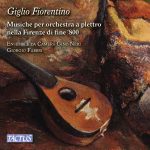Cesare Galeotti (1872-1929), Luigi Maurizio Tedeschi (1867-1944), Virgilio Mortari (1902-1993)
Three composers, Tedeschi, Galeotti and Mortari, with three completely different musical styles: what they share is the sound of the harp and the rediscovery of its Italian repertory, which is mostly still unknown, or very nearly so. The history of the pedal harp in Italy presumably began with Leonardo Primavera (1740-1802), an obscure character who was mentioned for the first time, as a soloist and teacher, by Blanda Bagatti in her book Arpa e arpisti (Piacenza, 1932) and later by Rosario Profeta in his Storia e letteratura degli strumenti musicali (Florence, 1942). Primavera’s pupils almost certainly included Giuseppe Andreoli (1757-1830) and Curzio Marcucci (1775-1842). Andreoli was also a double-bass player, a double-bass teacher at the Conservatory of Milan, and a copyist at the Teatro alla Scala; playing the harp probably was a marginal activity for him, although sometimes he performed with the orchestra of the Teatro alla Scala under the baton of Alessandro Rolla. Curzio Marcucci, a former violinist, harpsichordist and organist, decided to devote himself exclusively to the harp after meeting Viscount Marie-Martin Marcel de Marin (1769-1849 c.), the greatest French harpist of the classical period, who at that time was only fourteen years old and was visiting Italy for the second time. Later Marcucci became a harp professor at the Conservatory of Florence, where he educated an entire generation of harpists, including some of the most important musicians on the European scene, such as his son Ferdinando (1800-1871), Filippo Scotti (1790-1868), and Angelo Bovio (1824-1909). Ferdinando Marcucci, internationally known as one of the greatest harpists of his time, played in the orchestra of the Italian Theatre of Paris, and was a friend and protégé of Rossini’s. In 1835 he took his father’s place as harp professor at the Conservatory of Florence. Filippo Scotti was the founder of the great Neapolitan harp school, which gave rise to a generation of musicians who dispersed from South America to Russia, disseminating the great cantabile quality and musical taste of Italy.
Tracklist
Etude-Impromptu op. 37 6:58
Suite op. 34
1. Largo maestoso 7:05
2. Andante sostenuto 4:20
3. Assai vivace 4:18
4. Allegro moderato - Largamente - Largo e pesante - Allegro 5:11
Cesare Galeotti (1872-1929)
Fantaisie op. 138 11:06
Legende op. 139 11:50
Scherzo-Caprice op. 159 7:09
Virgilio Mortari (1902-1993)
Studi Galanti:
Sarabanda 4:17
Notturno 3:28
Studio di terze 2:46
Sonatina prodigio
Gagliarda 2:18
Canzone 1:25
Toccata 2:30
- Composer: Cesare Galeotti (1872-1929), Luigi Maurizio Tedeschi (1867-1944), Virgilio Mortari (1902-1993)
- Performers: Eleonora Volpato
- Musicological Text: Anna Pasetti
- Historical Period: Romanticism
- Code: TC 860001
- Edition: February 2015
- Barcode: 8007194105810
- Set: 1
- Total tracks: 14
- Total duration: 01:15:17
- Notes: World Premiere Recording







